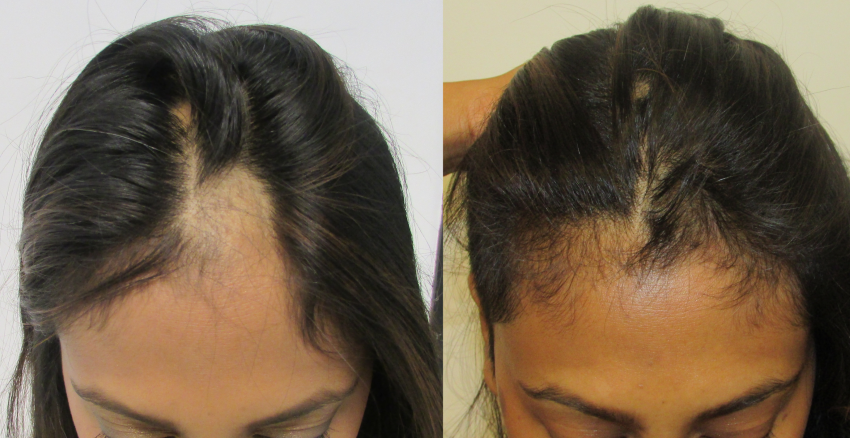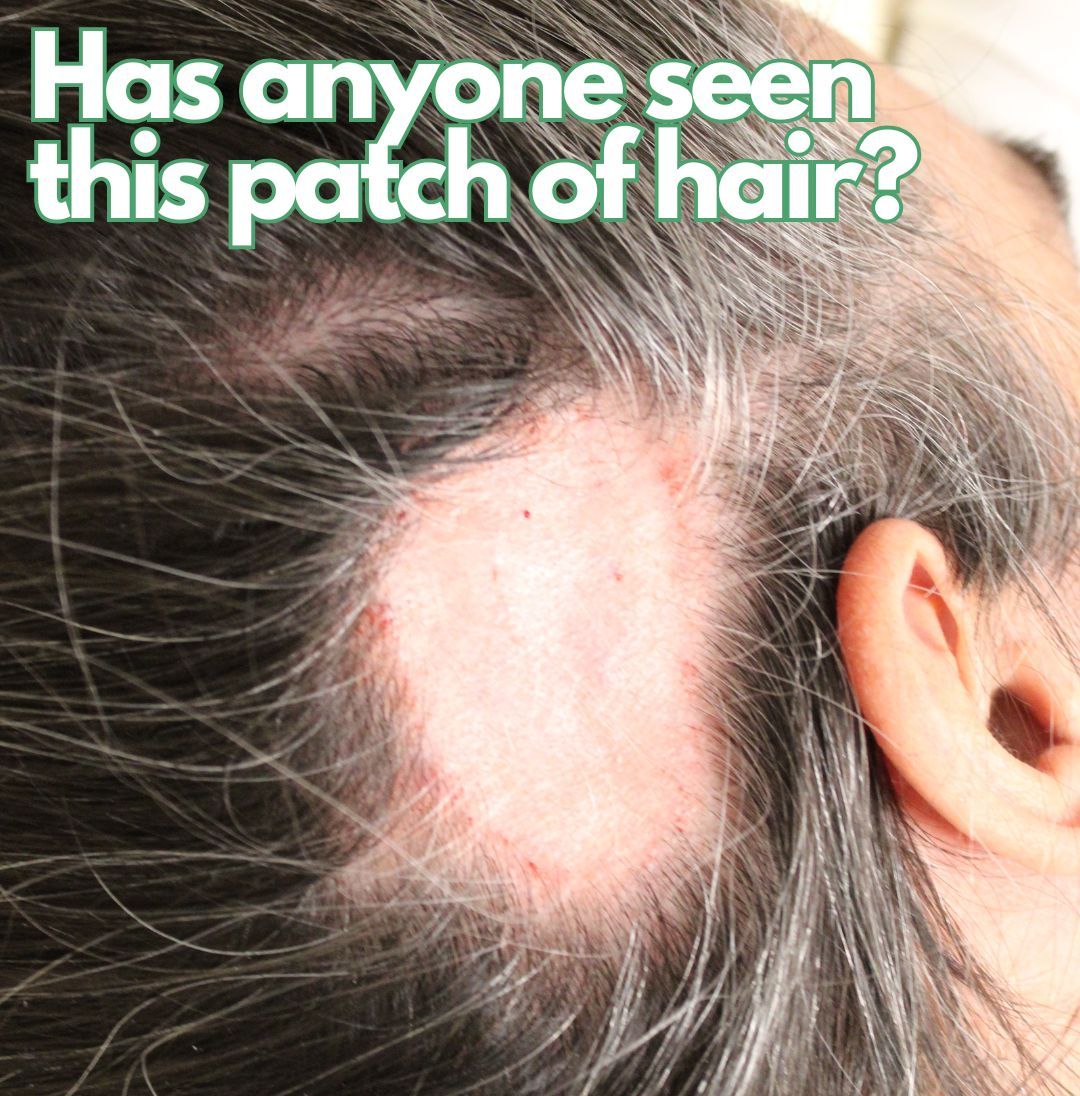Precision Medicine Hair Loss Myths
8 Myths About Precision Medicine and Hair Loss Debunked

Understanding hair loss can be challenging, especially with all the myths surrounding it. Precision medicine offers a promising approach to treatment, yet many misconceptions cloud its effectiveness. In this blog, we will debunk common myths about precision medicine and hair loss, paving the way for a clearer understanding of how science can help address this issue.
1. Precision Medicine is Just a Fad
Many dismiss precision medicine as a passing trend, but this couldn't be further from the truth. Precision medicine represents a shift from one-size-fits-all approaches to a more tailored method of healthcare. By considering individual genetic makeup, environmental influences, and lifestyle factors, precision medicine aims for effective treatments that are uniquely catered to the patient. This adaptability is what makes it a revolutionary advancement in managing conditions like hair loss.
Moreover, just like any cornerstone of modern medicine, precision medicine is built upon rigorous scientific research and clinical trials. It’s not merely a trend; it has been shaped and honed over several decades. That’s why health professionals and researchers advocate for its integration into mainstream healthcare practices.
2. Only Genetic Factors Matter in Hair Loss
It's a common misconception that hair loss is solely dictated by genetics. While it's true that genes play a significant role, they are not the only culprits. Environmental factors, stress levels, nutritional status, and underlying health conditions also contribute profoundly to hair loss. Precision medicine focuses on a holistic view, recognizing that treatment must address not only genetic predisposition but also these critical external influences.
This approach allows for more comprehensive assessments that go well beyond family history. For instance, someone may have a genetic predisposition to hair thinning but could experience accelerated hair loss due to a nutritional deficiency or high stress. Targeting these factors through personalized interventions can lead to more effective outcomes.
3. All Hair Loss Treatments are the Same
One prevailing myth is that all hair loss treatments are equally effective for everyone. This broad generalization undermines the fact that individual responses to treatments can vary widely. What works wonders for one person may not yield the same results for another. By harnessing the principles of precision medicine, treatments are customized to fit a person's unique profile, making them much more likely to succeed.
This tailored approach takes into consideration various factors such as age, the specific type of hair loss, and any concurrent medical issues. A treatment plan created through precision medicine can involve a mix of topical solutions, lifestyle adjustments, or even advanced therapies, all designed specifically for the patient's needs.
4. Precision Medicine is Only for Severe Cases
Another misconception is that precision medicine applies only to those with extreme cases of hair loss. In reality, it can benefit individuals at any stage of hair thinning. Early intervention is always crucial, and with precision medicine, even those in the initial stages of hair loss can receive personalized care that addresses their specific needs and treatment expectations.
Many individuals may not realize that starting treatment sooner can often yield better results. By utilizing precision medicine, even minor hair loss concerns can be addressed proactively, helping individuals regain their confidence and prevent further loss.
5. You Can’t Change Your Hair Loss Genetics
While genetics do play a key role in predisposition to hair loss, the belief that you're completely at their mercy is misleading. Precision medicine offers the possibility of mitigating these genetic factors through advanced strategies. For instance, depending on the individual's genetic risks, proactive measures can be employed to strengthen hair resilience and promote hair growth.
Furthermore, genetic testing can reveal actionable insights. If a person knows they are predisposed to certain conditions linked with hair loss, they can take preventive measures or make lifestyle changes that may help to slow the process down. This proactive approach makes it clear that while you can't change your genes, you certainly can influence how they impact your life.
6. The Process is Too Complicated to Understand
Many believe that the intricacies of precision medicine make it inaccessible. However, this notion simply isn't true. While the science behind precision medicine can seem complex, its core principles can be explained and understood in a straightforward manner. Essentially, it’s about applying tailored treatments based on individual characteristics. Medical professionals trained in precision medicine strive not only to understand this complexity but also to clearly communicate it.
Patients deserve clarity regarding their health, and a good healthcare provider will ensure that the process is demystified. Empowering patients with knowledge builds trust and encourages engagement in their treatment plans. It's about a partnership between the patient and the provider, aimed at achieving the best possible outcomes.
7. Precision Medicine is Only for Women
A common myth is that precision medicine predominantly caters to women experiencing hair loss. This misconception neglects the fact that hair loss affects people of all genders and ages. Men also suffer from varying degrees of hair thinning and loss, yet they should have equal access to effective solutions through precision medicine.
Precision medicine offers customized treatments that take into account gender-specific hormonal influences, which can lead to hair loss. Whether male or female, anyone can benefit from an approach that recognizes their unique biological makeup. Thus, dismissing precision medicine as a women-only solution denies men access to valuable personalized care that could vastly improve their hair health.
8. Results from Precision Medicine are Unpredictable
Some might believe that the outcomes of precision medicine efforts are inconsistent. This perception arises from a lack of understanding around how personalized treatments work. In fact, while individual results can vary, precision medicine is designed to achieve specific goals based on the tailored interventions it employs. The goal here is not merely to treat symptoms but to effectively address the underlying causes of hair loss.
As more data is collected and analyzed, the ability to predict outcomes improves significantly. Patients can receive informed expectations about their treatment plans, which are frequently adjusted based on their progress. This iterative process allows for real-time adjustments and provides much clearer expectations compared to traditional treatment methods.
Complete our quiz to find out whether Stop and Regrow's precision medicine approach will work for you.
Recent Articles From Our Blog


By providing your SMS number you opt in to receive occasional text messages from us. We will not ever sell or provide your data to third parties and you may opt out at any time.. Message and data rates may apply.. SMS Terms & Conditions








